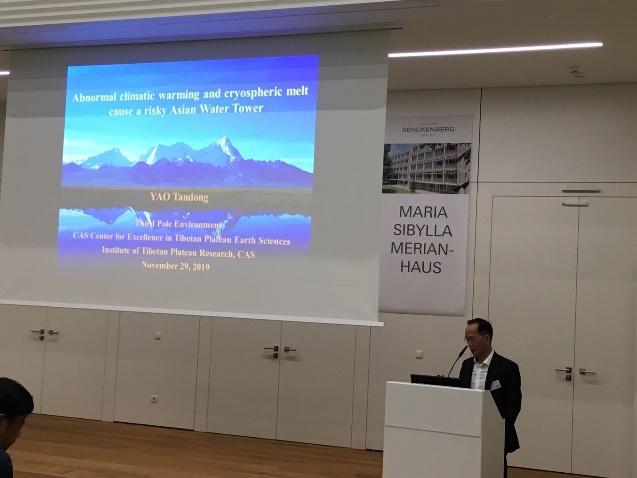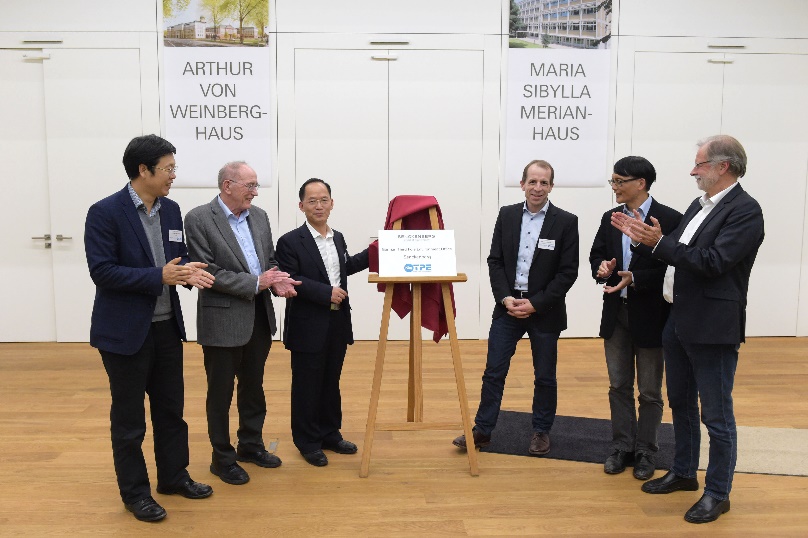The workshop was the ninth since TPE was founded in 2009. TPE workshops bring together scientists and stakeholders from all over the world to discuss past, current and planned research initiatives in the Third Pole region. One goal of the workshops is to publish “synthesis”papers in high-impact journals, according to one of TPE’s three cofounders and co-chairs, Prof. Volker Mosbrugger, general director of the Senckenberg Society for Nature Research in Frankfurt, Germany. Another workshop goal is to encourage cooperative, multinational and transboundary research on the region’s uniquely dynamic environmental processes.
The current workshop focused on strategies for adapting to possible changes on the Tibetan Plateau this century. It particularly focused on climate change scenarios related to ice, water, geo-ecosystems and human activities as outlined in the Fifth Assessment Report (AR5) of the Intergovernmental Panel on Climate Change (IPCC). The workshop also suggested some practical sustainable development goals (SDGs) for the region.
"Third Pole environment changes will affect not only China, but also Asia or even the entire globe,”said Prof. Tandong Yao, a TPE cofounder and co-chair as well as a Member of the Chinese Academy of Sciences. "This region wins its reputation as the Third Pole, because like the Arctic and Antarctica, it has an important global impact," said Yao.

Prof. Tandong Yao giving a keynote on the impact of climate change on Asian water towers
“Climate change is happening here and now and we are at risk of pushing our climate system toward abrupt, unpredictable, and potentially irreversible changes with highly damaging impacts,” said Prof. Lonnie G. Thompson, also a TPE cofounder and co-chair as well as a scientist at The Ohio State University in the U.S.
Prof. Deliang Chen of Sweden’s University of Gothenburg described the workshop as having a high degree of internationalization. He noted that it dealt with timely scientific questions and common concerns and had “significant implications for people in the region and beyond.”
Another highlight of the workshop was the official opening of TPE’s German office, which is based at the Senckenberg Society for Nature Research and is TPE’s fifth office. Other offices are located in Beijing, China, Kathmandu, Nepal, Columbus, Ohio (U.S.), and Gothenburg, Sweden. The German TPE office will mainly focus on knowledge transfer, outreach and the education of young scientists.

TPE officially opens German office at the Senckenberg Society for Nature Research
(from left to right: Fahu Chen, Lonnie G. Thompson, Tandong Yao, Andreas Mulch, Deliang Chen, Volker Mosbrugger)


